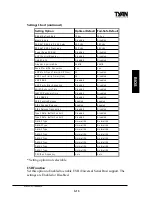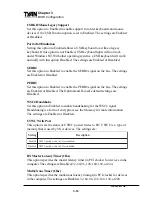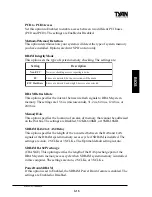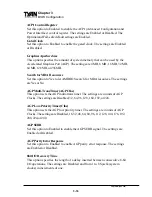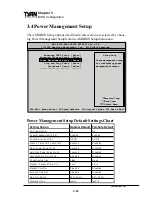
http://www.tyan.com
3-10
Chapter 3
BIOS Configuration
Management and Reporting Technologies) protocol for reporting server
system information over a network. Enabling this feature allows you to back
up your data when your hard disk is about to fail. The settings are Enabled or
Disabled.
Boot Up Num-Lock
Set this option to Off to turn the Num Lock key off when the computer is
booted so you can use the arrow keys on both the numeric keypad and the
keyboard. The settings are On or Off.
PS/2 Mouse Support
Set this option to Enabled to enable AMIBIOS support for a PS/2-type mouse.
The BIOS will allocate IRQ12 for the PS/2 mouse. The settings are Enabled or
Disabled.
Primary Display
This option configures the type of monitor attached to the computer. The
settings are Absent, VGA/EGA, CGA40x25, CGA80x25, or Mono.
Password Check
This option enables password checking every time the system boots or when
you run AMIBIOS Setup. If Always is chosen, a user password prompt
appears every time the computer is turned on. If Setup is chosen, the pass-
word prompt appears if AMIBIOS is executed.
Boot To OS/2
Set this option to Yes if you are running an OS/2 operating system and using
more than 64 MB of system memory on the motherboard. The settings are Yes
or No.
Internal Cache
This option sets the type of caching algorithm used by the L1 internal cache
memory on the CPU. The settings are Disabled, WriteThru, or WriteBack.
System BIOS Cacheable
When set to Enabled, the contents of the F0000h system memory segment can
be read from or written to cache memory. The contents of this memory segment
are copied from the BIOS ROM to system RAM for faster execution. The
settings are Enabled or Disabled. The Optimal default setting is Enabled.


















